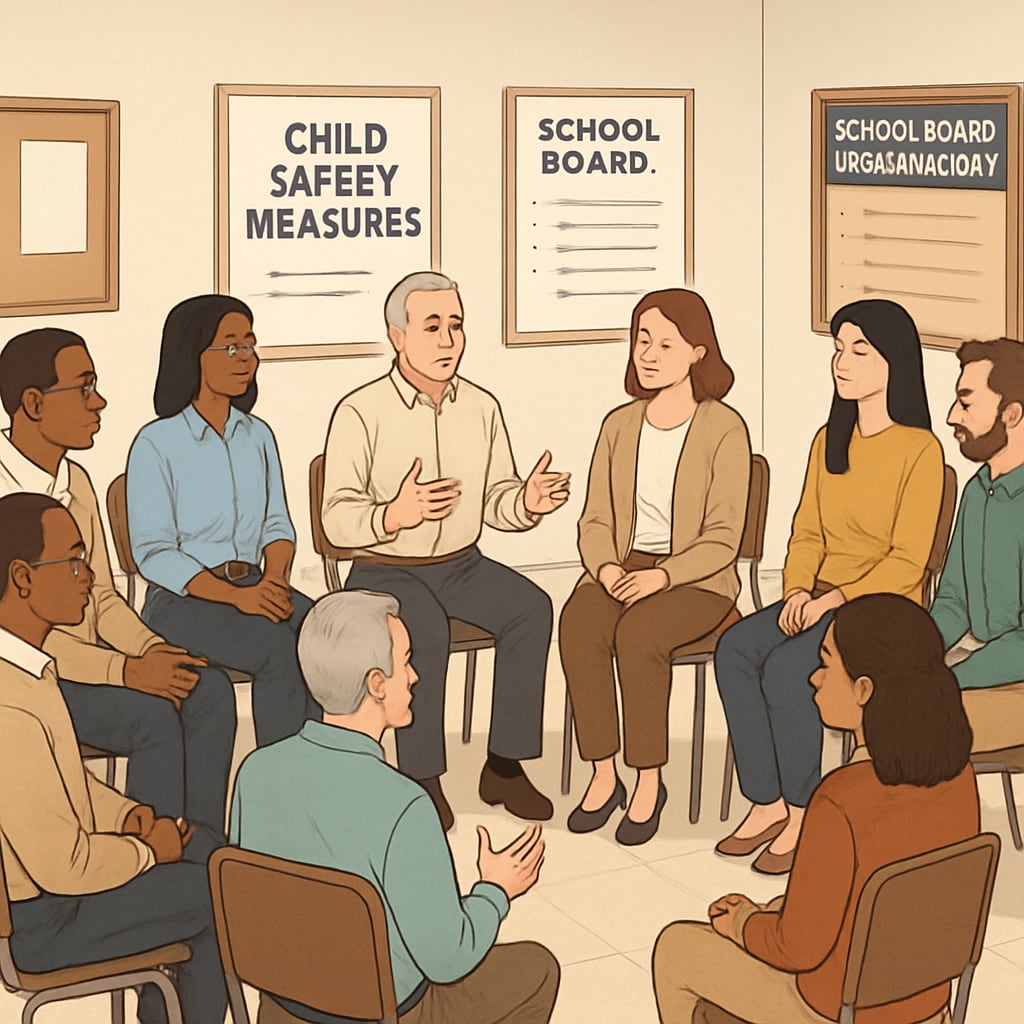When a school board member has a history of child abuse, the community faces a critical dilemma: balancing trust in the educational leadership with the undeniable need for child safety. These concerns are particularly evident in small towns, such as a Maine community grappling with this exact issue. The presence of such individuals in positions of power within schools raises alarms about accountability, transparency, and the well-being of students. This article delves into community concerns, institutional vulnerabilities, and actionable steps to safeguard children and ensure trustworthy governance.
Understanding the Impact of Child Abuse Histories in Educational Leadership
Educational institutions are built on trust, and school board members play a pivotal role in shaping policies and overseeing school operations. However, the revelation of a board member’s history of child abuse undermines this trust and creates significant ethical concerns. Parents, teachers, and students often feel a heightened sense of vulnerability, questioning whether the institution prioritizes the safety and well-being of children.
For example, psychological studies highlight the long-term trauma caused by child abuse, emphasizing the importance of creating safe environments for children to thrive (Child abuse on Britannica). When leadership includes individuals with abusive histories, even if legally absolved, the perceived risk can erode confidence in the institution.

Community Actions: Addressing Concerns and Building Solutions
Faced with such challenges, communities often mobilize to demand accountability and implement protective measures. In the Maine town mentioned earlier, residents have organized town hall meetings, petitioned for transparency in board member selection processes, and advocated for stricter vetting procedures. These actions reflect a strong sense of collective responsibility and the desire to safeguard children from potential harm.
Key steps communities can undertake include:
- Mandating background checks for all school board members.
- Establishing independent oversight committees to review board decisions and member histories.
- Creating open forums for parents to voice concerns and contribute to governance practices.
Such measures not only address immediate concerns but also set a precedent for responsible governance in educational institutions.

Strengthening Institutional Policies for Long-Term Protection
While community actions are vital, systemic solutions are equally important to ensure lasting safety and trust. Schools can adopt policies requiring board members to disclose any criminal history during application processes, with significant oversight from state-level education authorities. Furthermore, training programs can be introduced to educate board members on child protection protocols and ethical decision-making.
Collaboration between schools, local governments, and child welfare organizations can also enhance institutional safeguards. For example, resources available through organizations like Child Welfare Information Gateway provide guidance on creating effective prevention strategies and fostering supportive environments for children.
Restoring Trust and Advocating for Transparency
Restoring trust in schools with compromised leadership requires transparency, accountability, and consistent community engagement. Parents and stakeholders must demand clear communication about board member histories and decision-making processes. Additionally, school boards should be held to higher ethical standards, ensuring that their members act in the best interests of students and families.
While the Maine community’s challenges highlight a specific case, the broader implications resonate nationwide. Protecting children and rebuilding trust in educational institutions is not just a local concern—it is a universal responsibility that requires collective action and systemic reform.
Readability guidance: This article uses short, concise paragraphs and lists to summarize key points. Overarching themes are supported with authoritative links and practical recommendations. The tone is professional yet accessible to ensure broader community understanding.


